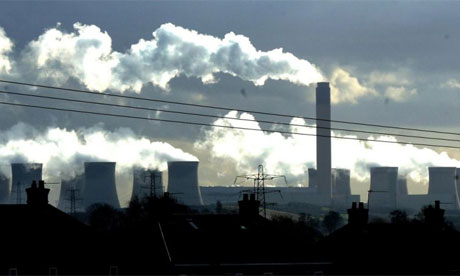
The Sunday Times - February 1, 2009 To stop the world warming we have to cut our carbon emissions to African levels. It may be crippled and reviled, but Britain’s banking industry is likely to become one of the nation’s key assets in dealing with climate change, according to Lord (Nicholas) Stern.
Speaking at the World Economic Forum in Davos last week, Stern suggested that Britain’s banks and other financial institutions would be an essential element in building the low-carbon infrastructure the country will need if it is to achieve its emission-reduction targets. He also believes such investments could help them rebuild their profits.
“Banking could do very well as Britain moves to a low-carbon economy,” he said. “There will be lots of business opportunities and Britain’s bankers are particularly strong in this area. They have been very creative over all kinds of issues and they could do it again in the financing of green initiatives.”
Stern, former chief economist at the Treasury, is among Britain’s most influential economists. Two years ago he published The Stern Review: The Economics of Climate Change, which described climate change as the “greatest and widest-ranging market failure ever seen”. More >>>





